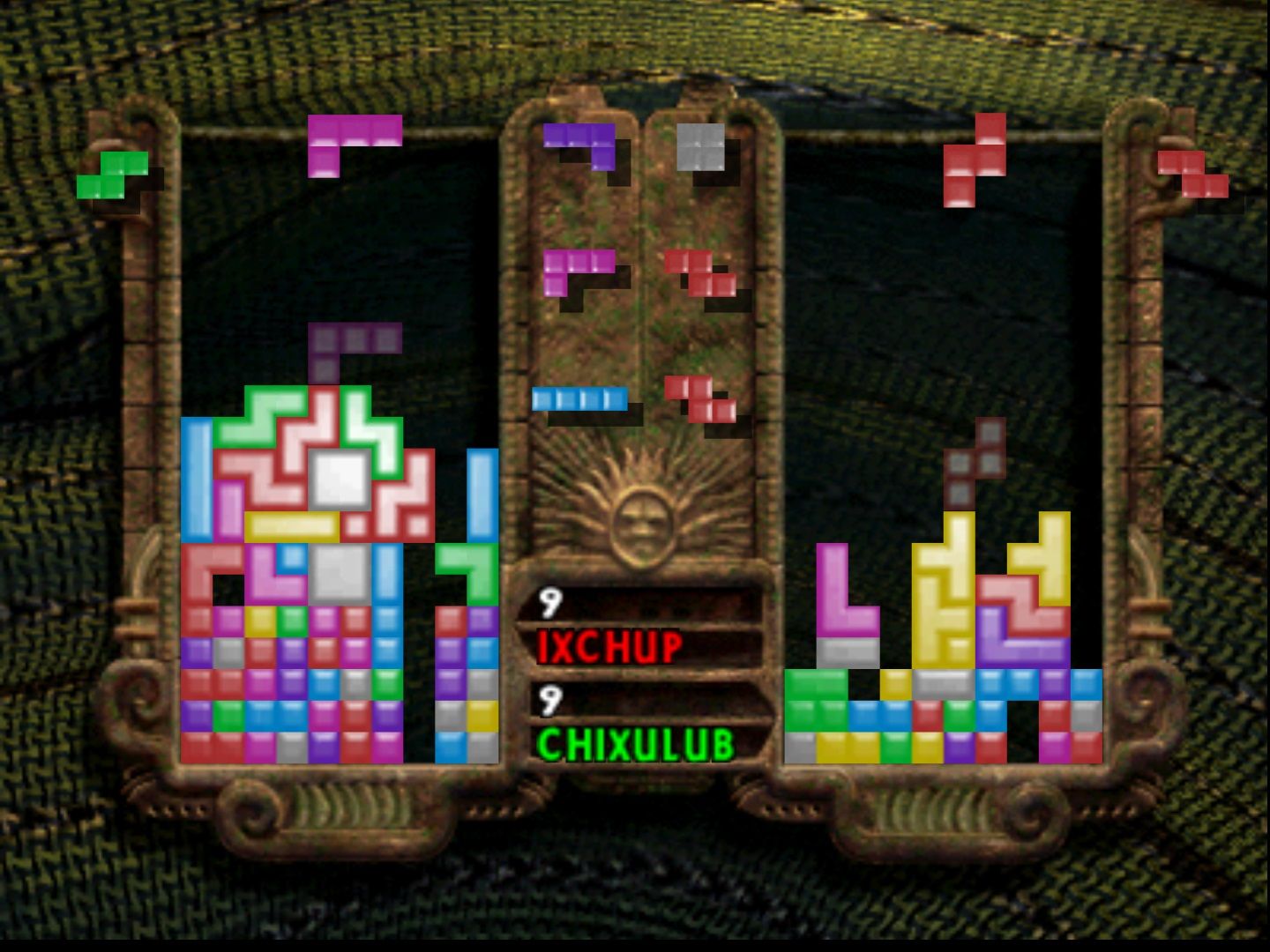Just three days after the launch of The New Tetris—a Nintendo 64 update of the classic block puzzler—hackers broke into the game and found something surprising buried deep within the code. Game developers often hide weird messages in their games: usually dedications to family, taunts aimed at nosy hackers, crude jokes, or nerdy sci-fi references. It's essentially digital graffiti, never meant to be seen by anyone. But this was something else entirely. It was a furious rant of epic proportions, in which the author personally attacked their fellow developers and outright said the game sucked.
You can read the rant in full on The Cutting Room Floor, but highlights include claims that the game's 'useless' producer spent his days playing StarCraft instead of working; that a designer threw his fellow developers under the bus to avoid upsetting Nintendo; and how the finished game was a letdown. "This game sucks," the author wrote. "The music is great, but the game itself is not how we wanted it unfortunately." It's notall negative, however. The writer thanks and praises plenty of people too, and seems to have ultimately enjoyed the years he spent at developer H2O Entertainment.
This lengthy diatribe, the infamous Tetris Rant, was written by programmer David Pridie, who sadly died a few years after the launch of the game aged just 29. "Most know of Dave's involvement in the video game industry as a programmer," reads a memorial site written by a close friend and the lead artist on The New Tetris. "But not as many know about a secret message he slipped into the final code of a game he worked on. At the time he got into quite a bit of hot water with Nintendo. He figured it was his small piece of immortality, and no one would find it for years—if at all."
He was wrong about no one finding it for years, but right about it becoming immortal—as this article, written over two decades after the fact, neatly illustrates. The Tetris Rant is one of my favourite pieces of deep gaming lore, but it's just one of many examples of strange, bitter, angry, or otherwise intriguing messages left lingering in the finished code of video games. It's not even the only rant. In Iron tank, a WW2-themed NES shooter, coder Yukio 'KNT' Kaneda wrote: "This is the programmer, KNT. Those idiots at Nintendo are fucking assholes! Die! Go bankrupt! I hate the Famicom!"
In Erika to Satoru no Yume Bouken, a NES adventure game, a disgruntled coder known only as Hidemushi hid an incredible message in the code. "First off, Kaoru Ogura, who ran off with some guy in the middle of the project. Yes, you, you bastard. Don't show up at the office without showering after having sex 6 times the previous night. Next, Tatsuya Ōhashi. Coming in late on the day we ship the ROM. You can give me all the porn you want: I'm not forgetting that one. Yamagishi, who swore off soaplands (Japanese brothels) until the project was over, go ahead. Knock yourself out now."
Some are more measured. "I programmed this game," reads a message hidden in 2001 platformer Kirikou. "If only it had some more serious designers and less chaotic planning, it would have turned out better." In a shooter called Feedback, released in 1988 for the MSX2, a message from an anonymous coder reads: "Man, I am so broke. Normally an employee would be entitled to ¥200,000 a month for this much overtime. In reality, I'm getting more like ¥100,000." This is just one line from a 3,000 word screed about the author's experience making the game, ending with them calling the president of the company a 'stingy miser' for only giving them 2 days off.
Some of these make The Tetris Rant seem tame in comparison. There are a lot more examples out there, all immortalised on The Cutting Room Floor wiki and regularly shared via this brilliant Twitter bot. There's something fascinating, and slightly voyeuristic, about reading them. It's like pulling back the curtain and revealing what the people who make games really think. It's also a reminder that these things aren't created by faceless, monolithic companies: they're made by individuals who get angry like the rest of us. But thanks to snooping hackers, their secrets couldn't last.
Source: Read Full Article

